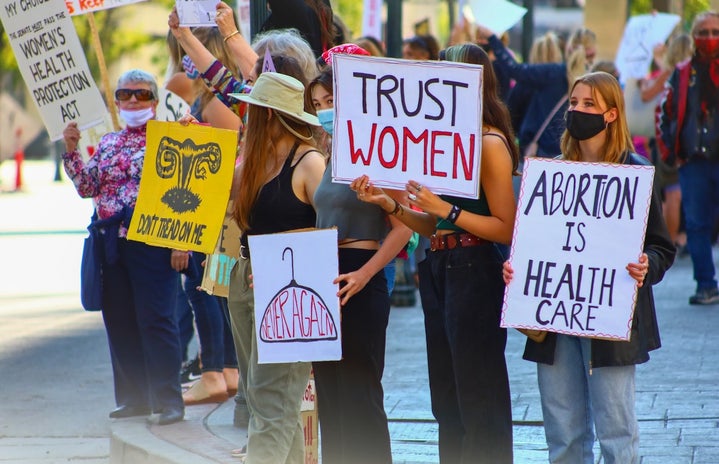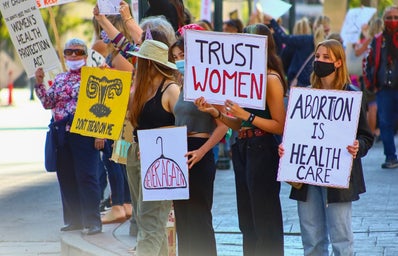With the midterm elections coming up on Nov. 8, the overturning of Roe v. Wade in late June of this year is going to be a major driving force in voter decisions for Democrats. For now, abortion is still accessible in Virginia up until the third trimester (26 weeks, six days). However, it is no longer protected by federal law and faces potential threats within the state legislature.
The city of Richmond is one of the most diverse cities in the country, with over 46% of the population being African American. Abortion restrictions hit the African American community hardest due to the socioeconomic implications of this issue, meaning the Richmond population will be disproportionately affected by any further restrictions.
Richmond Mayor Levar Stoney garnered unanimous city council support to protect rights within the city following the ban. The council approved this resolution in early July, cementing the city’s longstanding commitment to progressive values. Stoney also suggested that the Virginia General Assembly take a number of steps including amending the state constitution to define abortion as a protected right, removing the term from the Virginia criminal codes, and repealing state bans.
The Richmond Reproductive Freedom Project (RRFP) remains one of the city’s largest abortion access support groups. The RRFP is a grassroots, volunteer-driven abortion fund which was founded by women of color. It focuses on the intersectionality of reproductive justice, helping those groups who are disproportionately affected by this ban. Those who cannot afford access to safe abortion can turn to this group for funding through grants and for transportation and shelter. Many centers in Virginia also have the option to mail the abortion pill, which is a great resource for those who cannot afford to travel.
Richmond also has a number of abortion clinics patients can access for in-person treatment. Hamilton Health Center and East End Health Center (both run by Planned Parenthood), Richmond Medical Center for Women and A Capital Women’s Health Clinic offer the abortion pill and procedure depending on how far along the pregnancy a woman is. However, many of these clinics, unfortunately, stop services well before Virginia’s legal limit. A Capital Women’s Health Clinic offers the abortion procedure only up until 16 weeks of pregnancy and the Hamilton Health Center and Richmond Medical Center offer the procedure up until 21 weeks of pregnancy. The East End Health Center offers only the abortion pill up until eight weeks of pregnancy.
Other clinics in the Charlottesville and Chesapeake region tend to have comparable, if not stricter, limits. Past 26 weeks and six days, those seeking an abortion will most likely have to turn to the Washington, D.C. clinics which offer abortions through 28-31 weeks of pregnancy. It is important that the Richmond area, specifically, expands its clinics to offer services extending to the legal abortion limit.
In terms of the politics of this issue, Virginians as a whole are split. A Wason Center survey of 740 registered voters shows just how nuanced this issue is. Key findings include:
- Virginia registered voters oppose the U.S. Supreme Court’s decision to overturn Roe v. Wade (58% to 36%)
- Virginia registered voters prefer abortion to be legal in most/all cases (67% to 27%)
- A narrow majority support/strongly support an abortion ban at 15 weeks with exceptions for rape, incest, and life of the mother (51%)
- This is the position that current governor Glenn Youngkin (R), who is in support of the original June overturn, has continued to push for
The results show that this issue is not as black and white as just being for or against the right to have an abortion. Because one’s stance on abortion is more of a spectrum in the context of the law, it is important to use precise language in discussions surrounding reproductive rights.



